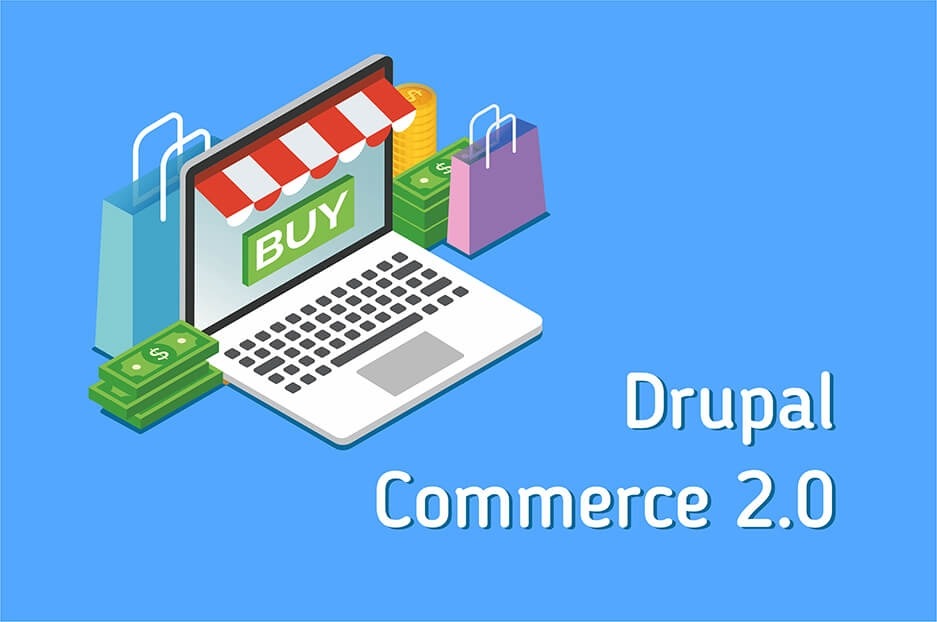
What is Drupal Commerce?
Drupal Commerce is used to build eCommerce websites and applications of all sizes. At its core it is lean and mean, enforcing strict development standards and leveraging the greatest features of Drupal 7 and major modules like Views and Rules for maximum flexibility.
Whereas eCommerce solutions are often developed with an application mindset, highlighting what you can do with it out of the box, Drupal Commerce was developed with a framework mindset, focusing on what you can build with it. The core Commerce systems make no hard-coded assumptions about your business model, privileging developers and site builders at the core level to build custom eCommerce solutions to suit.
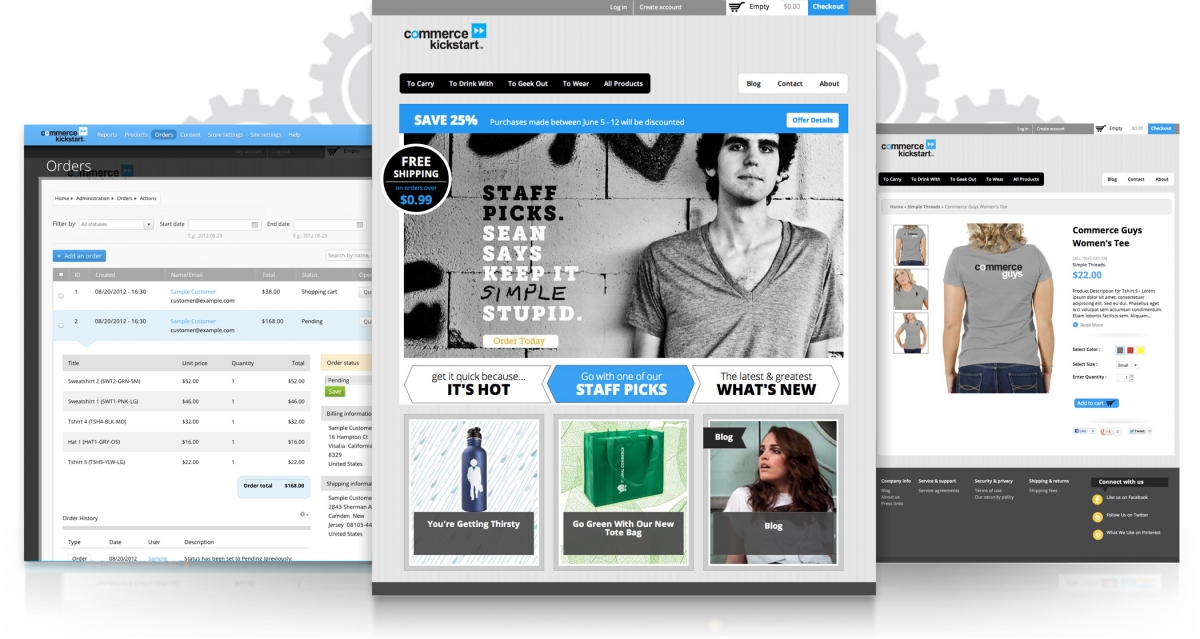
Drupal Commerce Benefits
The main benefits of Drupal Commerce are its Drupal 7-based platform, it offers capabilities that enable you to tailor the system to suit your business needs, easy-to-use interface, and an open-source platform. Here are more details:
Drupal Commerce 7-based Platform
This software is the only online commerce platform built based on an enterprise Customer Management System (CMS), Drupal 7, and created to seamlessly connect product and content. This platform helps its user deliver a positive and rich user experience, provides effective Search Engine Optimization (SEO) tools, and optimized merchandising applications.
Drupal Commerce Create a Custom Solution
With Drupal Commerce, you do not have to adapt your business to the software. Instead, the software allows you to customize it according to your business needs and requirements. Whether you are offering non-physical or physical items that require unique payment models such as subscription, licensing, and recurring, the platform has you covered.
Drupal Commerce Easy-to-use Capabilities
The platform comes with capabilities for administration system development and configurable processes. Therefore, a business does not have to rely on IT personnel to make changes and even experiment with new ideas and concepts. Even non-technical personnel without top IT knowledge and expertise will be able to handle the task well.
Drupal Commerce Open-source Platform
As an open-source platform, Drupal Commerce provides businesses with an extensive plethora of perks and capabilities and quality results at lower costs. This platform helps users attain excellent security records, faster speed, and greater innovation. Moreover, being a highly extensible platform, Drupal Commerce can also accommodate the ever-changing demands and needs of websites of all sizes. The software can be integrated with third-party systems to further its functionality.
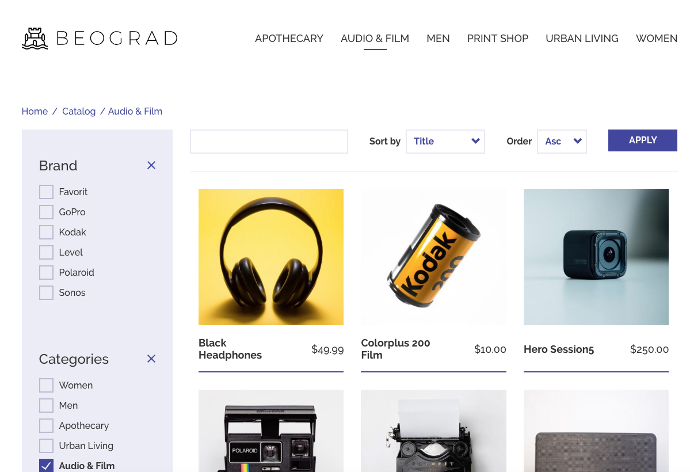
Drupal Commerce Main Features Overview
Before we discuss the features that are included with Drupal Commerce, it’s important to note that open source solutions, and this one in particular, are inherently different from many other ecommerce platforms. Unlike all-inclusive ecommerce software, Drupal Commerce was developed as a framework, as their website says, “focusing on what you can build with it [as opposed to] what you can do with it out of the box.” This means, essentially, that Drupal Commerce features include basic ecommerce functionalities, as well as options for integration and expansion, but on the whole, is meant for further coding and development. Keeping this in mind, the Drupal Commerce software includes:
Drupal Commerce Online Store Builder
As we mentioned, Drupal Commerce was built on Drupal 7, an open source content management system. As such, Drupal Commerce gives you the ability to design and develop your online store, as well as take advantage of the Drupal 7 CMS base. With Drupal Commerce, you can choose from free or premium mobile-responsive themes and adjust the design, layout, and logic to fully customize your online store. To expand your functionality, you can download and add pre-built Drupal modules, which can also be modified to fit your specific needs. Drupal Commerce has multilingual functionalities, as well as the scalability to accommodate high traffic and transaction volumes.
Drupal Commerce Product and Order Management
The core systems of Drupal Commerce allow you to create your products, customize the type, attributes, and display, and develop a product catalog. You have the ability to sell all kinds of products—from physical goods to downloadable products to subscription services. Drupal Commerce allows you to set up your own pricing rules, including additions for discounts, coupons, and multi-currency adjustments. With Drupal Commerce, you can also manage your orders by setting rules and developing a customized and automated order and fulfillment workflow.
Drupal Commerce Shopping Cart and Checkout
Drupal Commerce gives you full shopping cart functionality, with the ability to change the specific statuses of the shopping cart, as well as use modules to add statues, like for shipping or customer profiles. Drupal Commerce also allows you to customize your checkout form, displaying exactly what you need for your customers to fill out during the checkout process. Drupal Commerce supports single and multi-page checkout and offers pricing and tax calculations as well as VAT support for international commerce.
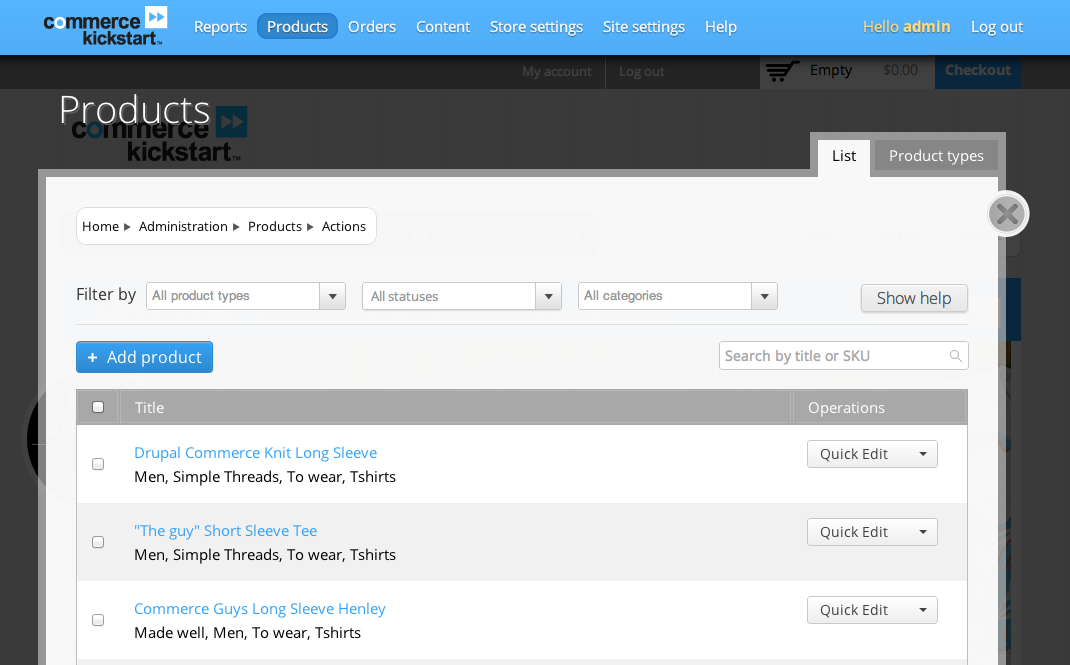
Drupal Commerce Payments
With Drupal Commerce, you can integrate with a variety of different payment gateways to accept credit card payments from your customers. Drupal Commerce offers free downloadable modules for some of the top payment processors, like Authorize.Net and PayPal, that will allow you to integrate their service with your ecommerce site. You will, of course, have to have an account with the payment provider you choose to actually utilize their service through your Drupal Commerce store.
Drupal Commerce Integrations
Drupal Commerce allows you to integrate with third-party tools, through their contributed modules—downloadable files that extend your site features, designed specifically for Drupal. Drupal Commerce has modules for payment processing, shipping services, analytics, reporting, marketing, and more. These modules can provide integration with top business tools like MailChimp, Google Analytics, Amazon Pay, and Xero accounting software. Drupal Commerce also provides the ability to connect with social media profiles, like Facebook, Twitter, and Pinterest.
Drupal Commerce Customer Support
Since Drupal Commerce is open source software and free to download, their customer support options are not quite the same as many other subscription-based ecommerce platforms. This being said, however, Drupal Commerce offers documentation guides for merchants, developers, and site builders. The Drupal Commerce website also offers a user Q&A forum, as well as a video library. For professional support, Commerce Guys, the creators of Drupal Commerce, provide application support plans at a monthly cost.
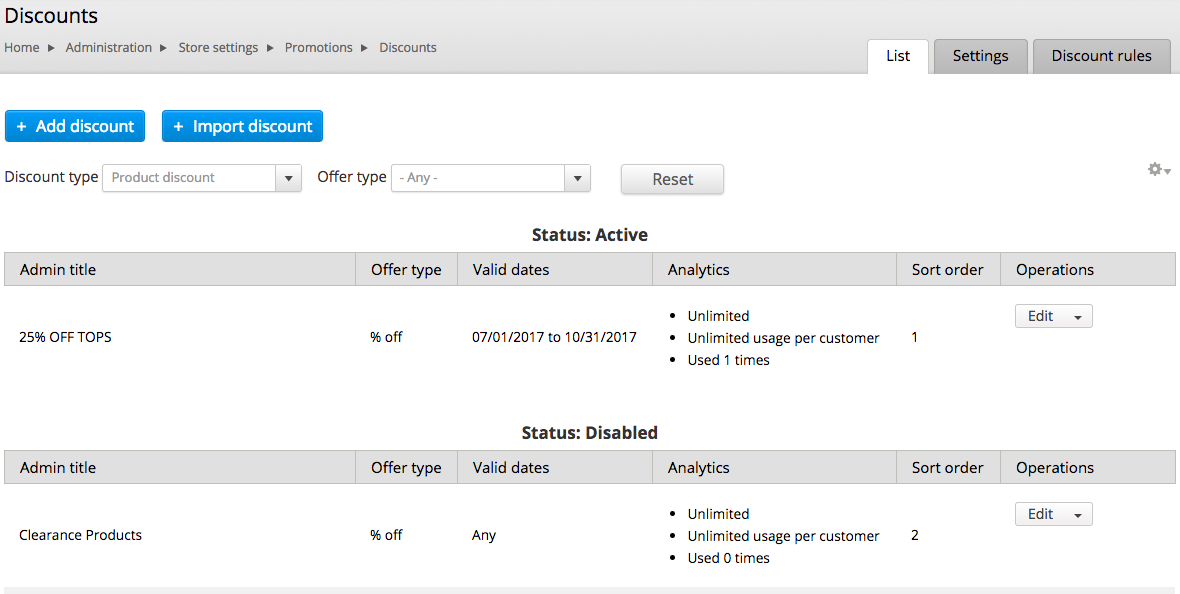
How Much Does Drupal Commerce Cost?
Drupal Commerce is free to download and use in the following operating systems: SELinux, Mac OS X 10.13, and Windows. Pricing for similar paid software ranges from $0-$29/month for those with basic features, while more extensive apps can cost $99-$149/month. Contact the company’ sales team for more details on Drupal Commerce pricing.
Let see reviews from member who used Drupal Commerce
- I've used Drupal Commerce in production and it's great for a site that needs some code customization that's not available with Shopify or WooCommerce. However, it doesn't have the full ecosystem that you'll find in other systems and it doesn't support modern e-commerce marketing or merchandising features. While these features could be programmed, they already exist on other platforms.
- I think that Drupal commerce is and has the capacity to be a powerful tool built on top of Drupal. I've used Commerce on D7 a few times, and have toyed with it in 8. It's very complex and the ecosystem outside commerce's core module set is spotty. Especially on 8. Admittedly it's got a ways to go, and it's facing incredible competition from other tools including Wordpress (Woo Commerce), Magento, Prestashop, Shopify and others. Is a Drupal commerce a fit for everyone? No probably not. Just like Drupal isn't a fit for everyone. I think the T&G article is written by people who are frustrated with the pace of change with tools dependant and beholden to the pace of change of Drupal itself in the face of other tools who are, arguably, more mature and mission ready.
- In 2019. we went from 7000 to 9500 2.x installs. We'll be hitting 10 000 by the end of the year. The number of people on the commerce channel (Drupal Slack) grew from 1000 to 1400 people. The number of listed payment gateways grew from 90 to 125, with more pending inclusion. We had over 350 contributors to Commerce and its immediate ecosystem, this year alone. I would say all of these are promising stats. Our official demo gives you a customizable Kickstart 2.x-like install. I suggest using that to understand how a Commerce site is built. The official documentation explains how products work.
- I use Drupal Commerce and while the learning curve is pretty high, I REALLY like being able to customize every little piece of operation. I can fire events or analytical hooks at any stage of the process and find where consumers are falling off. Register them for follow up after certain stages, offer upsells... all sorts of stuff. I'm currently working on a project to push my frontend into React, and using Drupal Commerce with GraphQL is working - allowing me to completely customize the experience in an SPA. I have an unprecedented integration between my site users and auth, and my ecommerce capabilities.
- It's a lot more complete than what it used to be when I first implemented, and there are some things that I still don't understand. I'm sure that a lot of this stuff can be done with other commerce platforms, but this keeps it neat and tidy under one app, and it's a platform that I know how to leverage the strengths of. I would also caution against using it "because Drupal" - use the best solution for the problem at hand with the resources available. It just happens that these things tend to coincide for me.
- From our standpoint, Drupal 8/Commerce is fantastic because it’s so customizable. None of our clients could use a Shopify or Ubercart (or WooCommerce, for that matter) based platform. That said, Commerce is a pain in the ass. Coding from the ground up and have the same features, though, would take significantly longer. Our last implementation took about 6 hours, and most of that time was spent building a custom module for a payment gateway. Once you get used to it, it’s much easier to set up.
- I think it can be an excellent solution for a medium or large company that has the ability to hire a skilled site manager. They don't need to be a software developer, but Drupal Commerce's capabilities need someone who knows Drupal and has a certain level of technical competence. I've seen some really tiny companies use Drupal for their eCommerce and regret it because the security updates, configuration, etc. are too much for them. They do better with hosted solutions like Shopify unless they have someone techy on staff (and they are willing to devote their time to Drupal).

Conclusion
Drupal Commerce is a highly extensible ecommerce software and can be optimized to meet the ever-changing needs and requests of commercial websites of any size through integration with third-party systems. Try it and leave a review.


